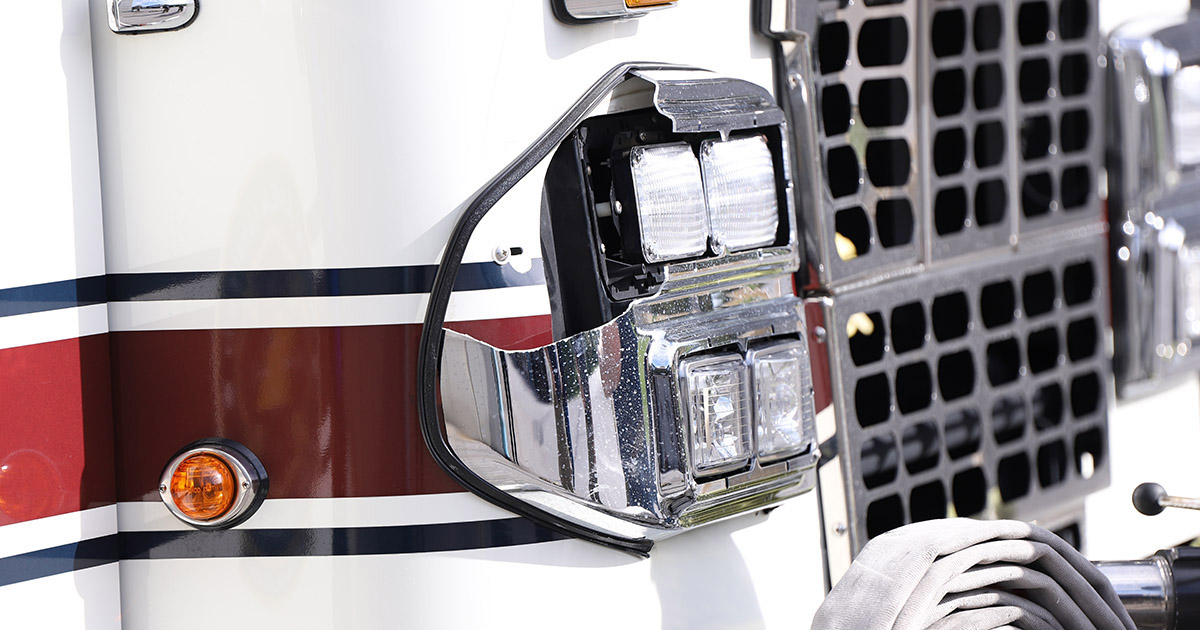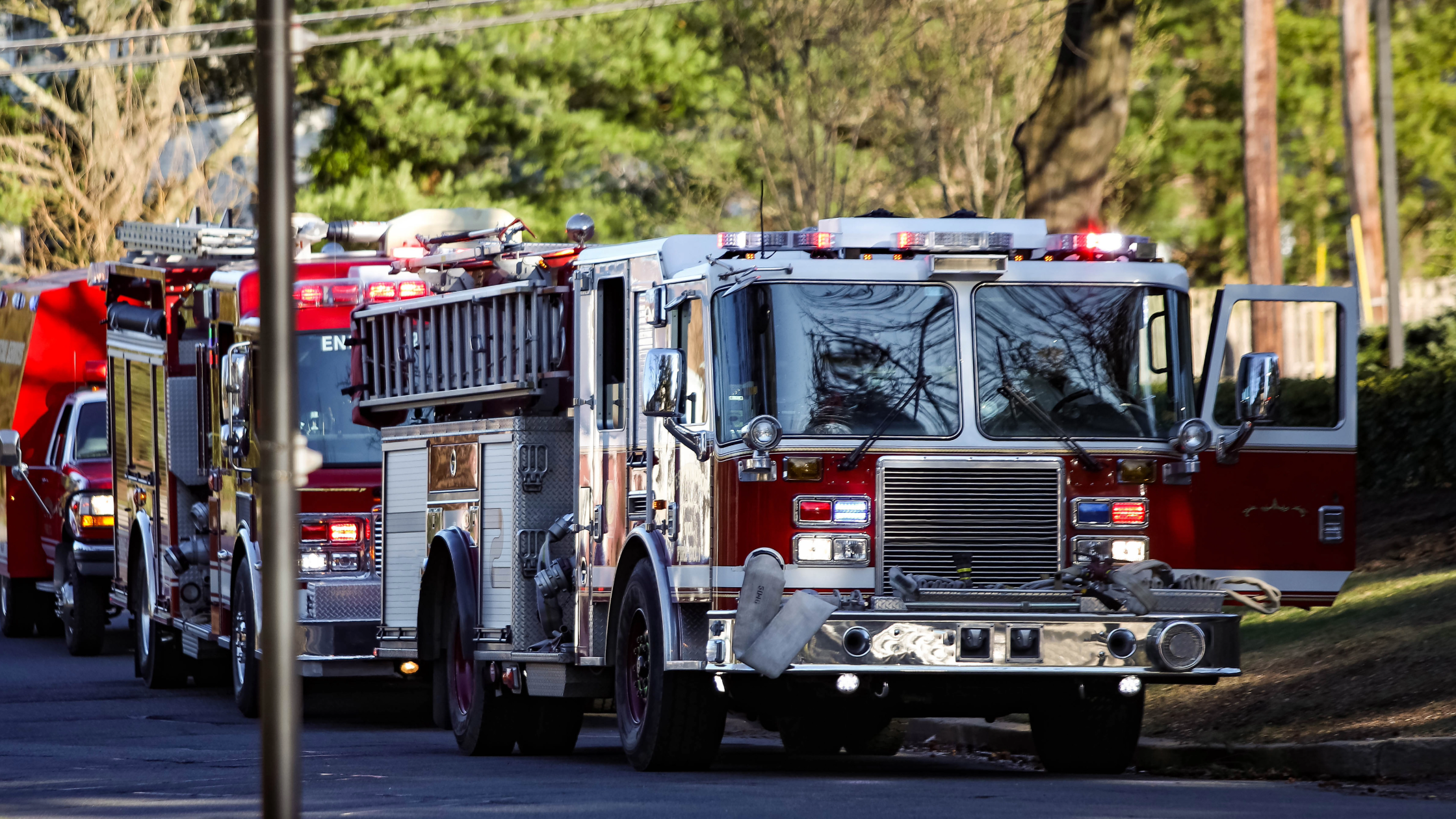Most people can’t do what you do—so you owe it to yourself, your loved ones and your community to take care of you.
Lack of sleep, missing holidays, increasing negative interactions with the public, administrative problems and struggling relationships are just some of the daily challenges, obstacles and pressures that you may face as an emergency responder. And while the “big” and “worst” days of your career certainly take a toll on your mental health—the stressors of the daily grind do too.
We sat down with Dr. Kathy Jansen to talk about the stressors you face and what you can do to help manage it.
Dr. Jansen’s experience as a Clinical Psychologist who specializes in behavioral health, serving as Clinical Director for the Critical Incident Stress Management Program in Southcentral PA, allows her to train responders to support their members through the immediate aftermath of critical incidents. She is also the wife and mother of emergency responders—and therefore has a thorough understanding of the stressors responders face in addition to ways to help manage it.
We were excited to have the opportunity to chat with her for a recent episode of our Don’t Risk It! podcast series and wanted to share some valuable insights from the episode, including stress management tools for everyday stressors and how to help promote behavioral health at an organizational-level.
Combating your personal stressors
“Our stress management skills operate on a continuum,” Dr. Jansen explains. This means that on your best days, you’re able to use your most-effective stress management coping mechanisms. But when things aren’t going as well, you’ll probably use less-effective tools (like complaining, procrastinating or overworking,) and on the really bad days, you’ll use your least-effective—possibly even destructive—coping mechanisms. So, while stress is inevitable—it’s important to realize that how you deal with it makes a difference and not handling it effectively could even lead to more of it.
Skip this next time you’re stressed!
If you do any of these things when you’re trying to take the edge off, you could be doing more harm than good:
Feeling anger or being aggressive
Psychology Today explains that while anger is a normal feeling—and can be positive—most people don’t know how to manage it appropriately. Because of this, anger usually feeds on itself and possibly leads to irreversible damage. In order to take your anger from a state of arousal where you’re unable to regulate your behavior (and possibly doing something you regret) and transforming it into a positive and motivating experience, Psychology Today recommends: taking deep breaths, changing your environment, understanding why you’re angry, letting go of what’s out of your control, being cautious, expressing yourself (assertively not aggressively) and memorizing positive statements that you can say to yourself when you’re feeling triggered (like: I am able to make good choices).
Emotional eating
The hormones that stress releases and the effects that high-fat, sugary "comfort foods" have on the body push people toward overeating, says Harvard Medical School. If you’re looking to curb this habit, Harvard
recommends keeping any impulse foods out of the home (otherwise, you’re inviting trouble), trying meditation, engaging in exercise and other activities and finding social support in friends and family.
Consuming alcohol or substances
While there’s usually no harm in one drink—it’s when one leads to two or three that problems arise, says Dr. Jansen. Why? Many responders already have issues with sleep because of their schedules and alcohol disrupts sleep even more. (Dr. Jansen also emphasizes that passing out and sleeping are not the same thing!) Plus, these substances are only short-term solutions because they’re actually depressants by nature, so you could actually feel worse when their effects wear off.
Try this instead!
Here are some of the healthy stress coping mechanisms that Dr. Jansen recommends:
Exercising
According to the Mayo Clinic, exercise has proven “stress-busting” benefits including pumping up your
endorphins, reducing the negative effects of stress, helping to shed daily tensions and improving your overall mood. And you don’t need to join a gym or follow a certain routine to get the benefits—the most important thing is to find something you enjoy.
Sharing
Whether it’s talking or writing, Psychology Today says that when we give words to our emotions, we become less reactive and more mindfully aware.
Engaging in healthy relationships + hobbies
Dr. Jansen explains that responders usually come on the job with a diverse set of friends but then that group often becomes limited to their coworkers eventually. While building relationships within your organization is great—without relationships with non-emergency responders, your view of the world can become very narrow. That’s why Dr. Jansen says it’s important to maintain personal relationships with people outside of your organization and find at least one hobby that is completely separate from your job. That hobby can be anything that fulfills a different side of you and that you find meaningful—from playing ice hockey to volunteering at church to woodworking or anything in between, just find something that works for you.
Sleeping well
Sleep is essential because it helps you recharge, remain healthy and fight off illnesses and function properly including your ability to concentrate, think clearly and process memories, explains the National Sleep Foundation. That’s why they advise adults to get between 7 and 9 hours each night.
For those who can’t catch their sleep at “night”, they recommend trying to keep your sleep schedule as consistent as possible, using shades or eye masks to help reduce daylight, utilizing ear buds or white noise machines to block-out sound, turning your phone off when you’re not on call, avoiding alcohol, trying a relaxing activity before bed like taking a hot shower and talking to your doctor about medication or supplement options, if needed.
It’s also important to realize that these tactics won’t only help you cope with stress—but a lack of them could also move you down on the stress management continuum all together. For example, poor sleep could lead you to grab a gallon of ice cream when you’re under pressure rather than going for a walk.
Now that we’ve covered healthy options for the next time that you’re feeling stressed, let’s look at how your emergency service organization can make changes to help your entire team.
How you can help combat stress at an organization level
“By nature, emergency responders are helpers—so it’s counter-intuitive to say they need help,” says Dr. Jansen. But that doesn’t mean they don’t need it.
While education is important and may seem like the natural place to start—resources and policies are only as effective as you make them. You can’t just sit articles around the station (like this one) and call it a day. In fact, Dr. Jansen says that an organization that makes absolutely no effort is in about the same place as one that has efforts in place but they’re either not utilized or people are formally or informally punished for using them.
Making true change and improvement starts with leadership. Leaders need to make behavioral health a priority, demonstrate a culture where mental health is just as important as physical health (after all, they do depend on each other), pay attention to member wellbeing and show that it’s not only okay to talk—it’s expected.
Addressing behavioral health concerns, including stress, is complex and won’t be easy—but it’s so important to act. “Most people can’t do the work you do,” says Dr. Jansen. “So, you owe it to yourself, your community and your loved ones to take the best care of yourself possible so that you can continue doing what you do in a meaningful way.”
Check out the Don’t Risk It! podcast to hear more of what Dr. Jansen had to say and browse other episodes on a wide-variety of topics like rollover prevention, workplace culture and patient handling.
DISCLAIMER
The information contained in this blog post is intended for educational purposes only and is not intended to replace expert advice in connection with the topics presented. Glatfelter specifically disclaims any liability for any act or omission by any person or entity in connection with the preparation, use or implementation of plans, principles, concepts or information contained in this publication.
Glatfelter does not make any representation or warranty, expressed or implied, with respect to the results obtained by the use, adherence or implementation of the material contained in this publication. The implementation of the plans, principles, concepts or materials contained in this publication is not a guarantee that you will achieve a certain desired result. It is strongly recommended that you consult with a professional advisor, architect or other expert prior to the implementation of plans, principles, concepts or materials contained in this publication.
This blog post may contain the content of third parties and links to third party websites. Third party content and websites are owned and operated by an independent party over which Glatfelter has no control. Glatfelter makes no representation, warranty, or guarantee as to the accuracy, completeness, timeliness or reliability of any third party content. References to third party services, processes, products, or other information does not constitute or imply any endorsement, sponsorship or recommendation by Glatfelter, unless expressly stated otherwise.
Related posts
We asked 10 members of our VFIS Team to name one auto-related risk that they believe is underdiscussed in fire and EMS agencies. Here’s what they said.
Most volunteer fire departments rely heavily on POVs, but there are inherent risks you should know.
Establish a Emergency Vehicle Operations Program that includes driver/operator requirements to help ensure your vehicles are in the right hands.











Submit a Comment